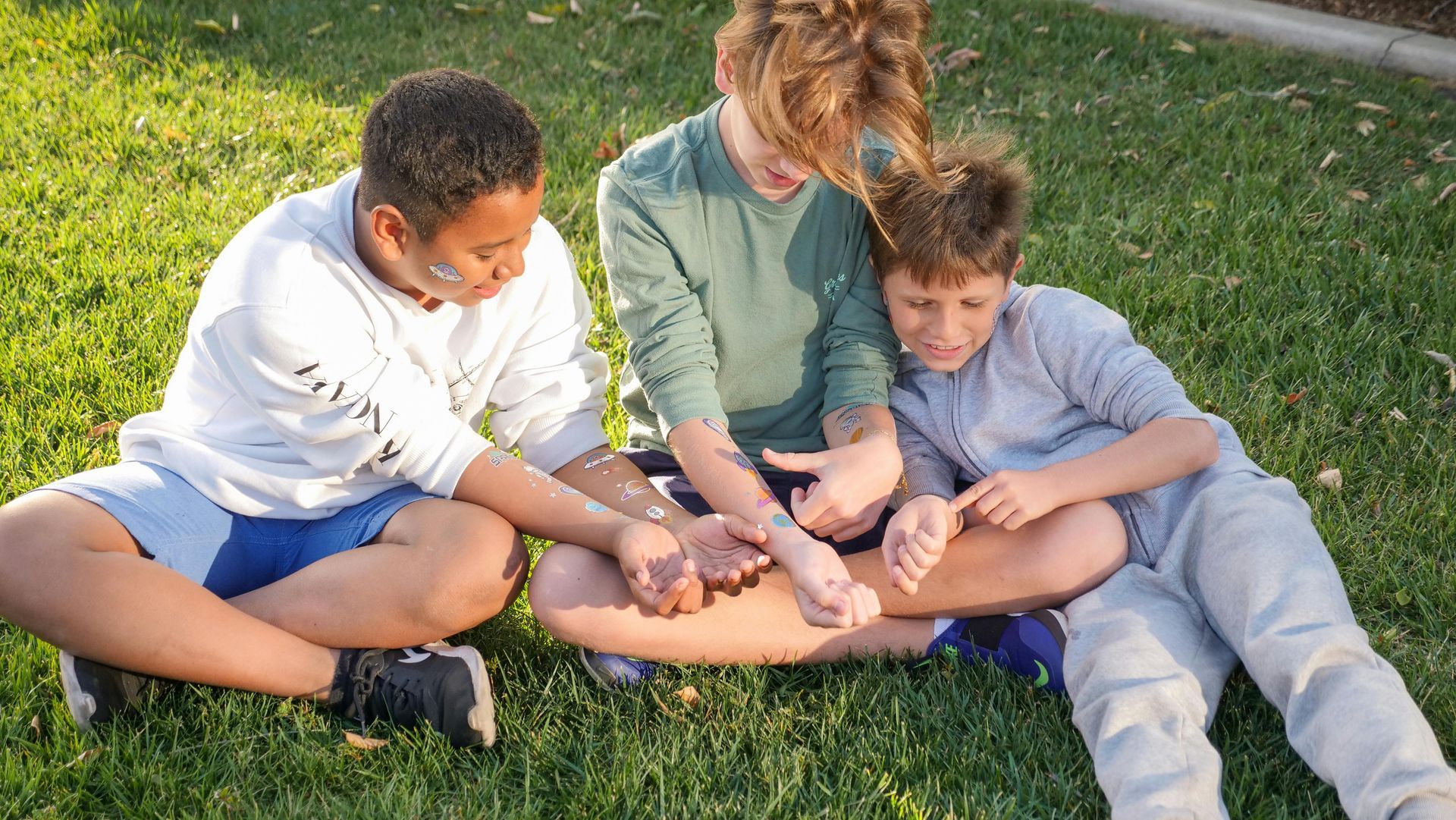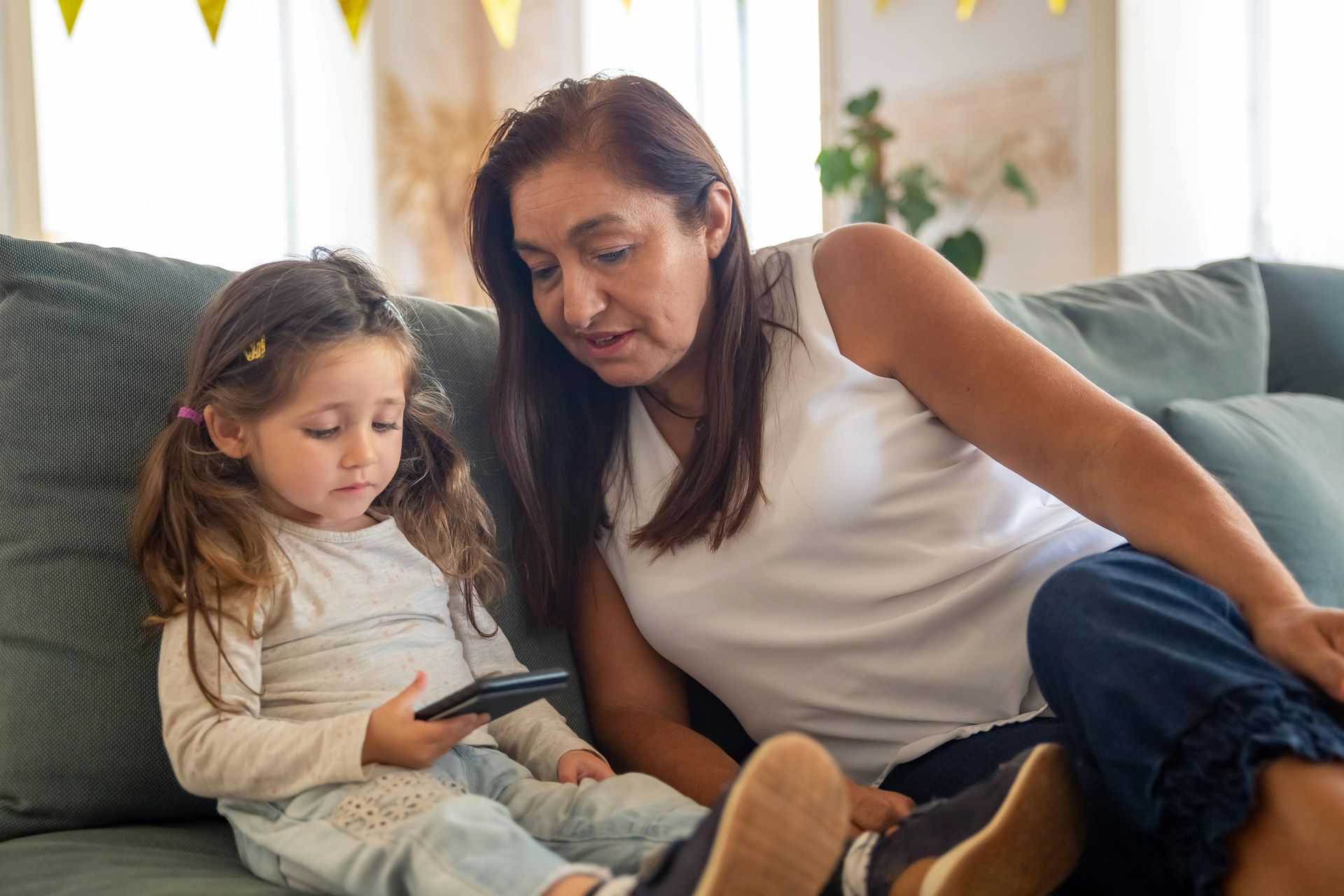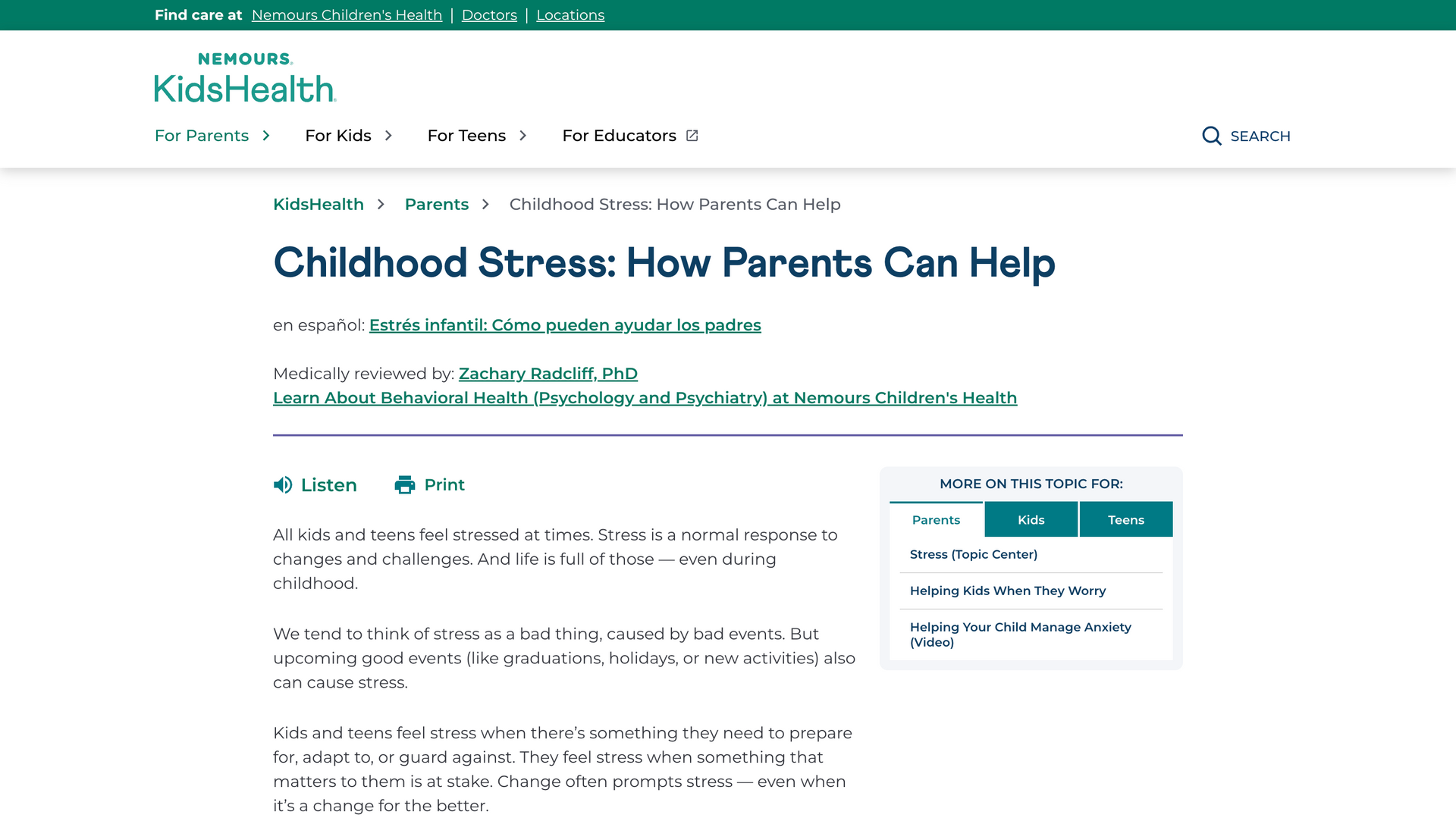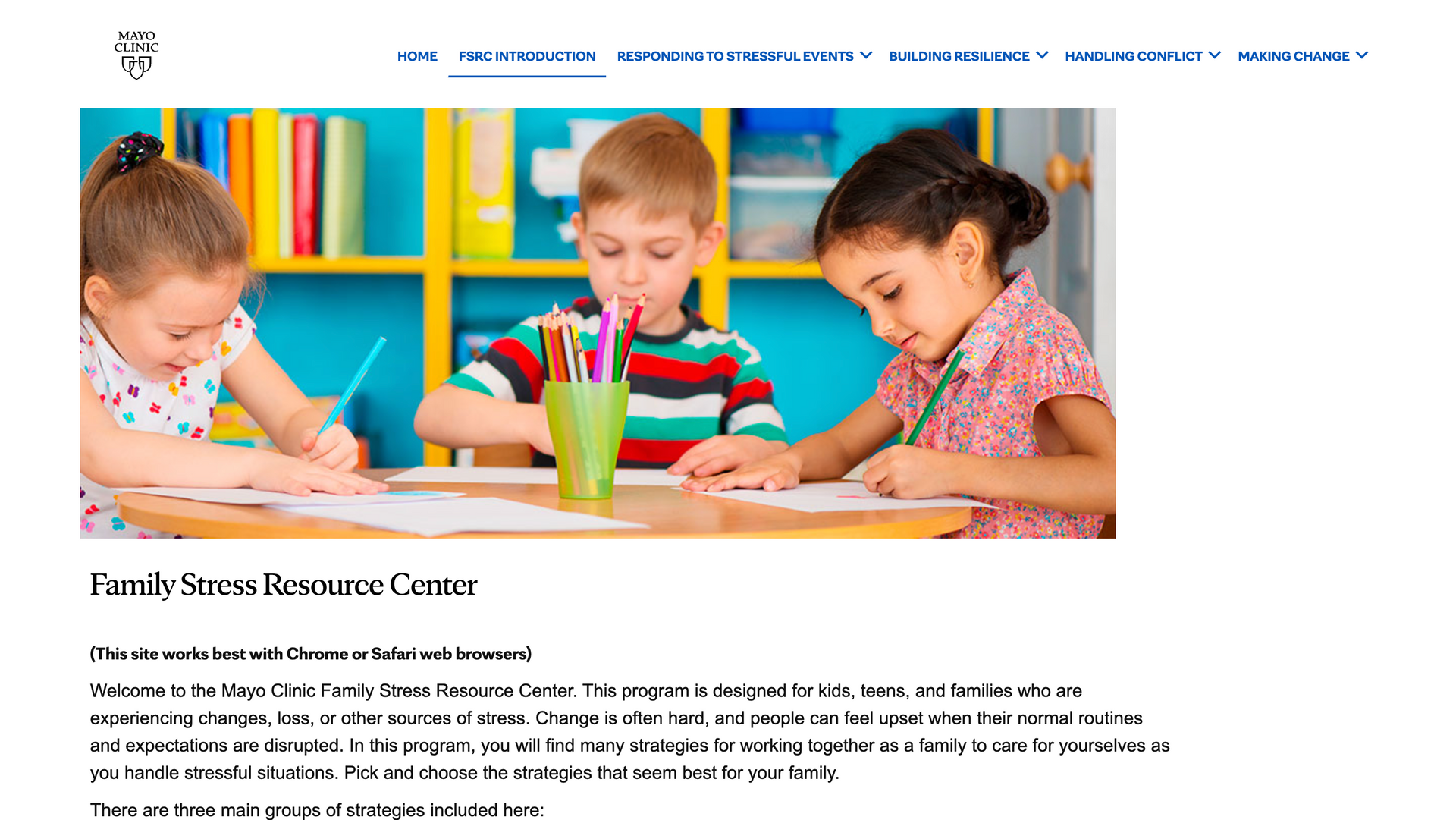How to Talk to Children About Managing Stress
Stress is not only something adults experience. Children also feel stress as they navigate school, friendships, activities, and changes at home.
While they may not always have the words to describe what they are feeling, caregivers can play an important role in helping children recognize, understand, and cope with stress in healthy ways.
Notice the Signs of Stress
Children often show stress differently than adults. Some signs to watch for include:
- Trouble sleeping or frequent nightmares
- Stomachaches or headaches with no clear cause
- Mood swings, irritability, or withdrawal
- Difficulty focusing on schoolwork or tasks
Recognizing these signals early gives caregivers a chance to step in with support.
Create a Safe Space to Talk
Children are more likely to share their feelings when they feel safe and heard. Make conversations about stress part of your regular interactions. A quiet car ride, bedtime routine, or shared activity can be a good time to check in. Let your child know it is okay to feel worried, nervous, or overwhelmed.
Use Age-Appropriate Language
When talking about stress, keep explanations simple and relatable. For young children, you might say, “Sometimes our brains feel busy, and it makes our bodies feel tired.” Older children may benefit from learning how stress affects their body and mind in more detail. The key is to meet them where they are.
Teach Healthy Coping Strategies
Helping children build healthy coping skills can make stress more manageable. Some helpful tools include:
- Deep breathing exercises or short mindfulness activities
- Physical activity such as walking, biking, or dancing
- Creative outlets like drawing, journaling, or playing music
- Keeping consistent routines for meals, play, and rest
Model Positive Stress Management
Children often learn by watching the adults around them. When caregivers demonstrate healthy ways to manage their own stress such as taking breaks, practicing calm breathing, or talking about feelings; children are more likely to do the same.
Encourage Support and Connection
Remind children that they do not have to handle stress on their own. Encourage them to talk with a trusted adult, whether that is a caregiver, teacher, or family member. Building strong connections helps children feel supported and secure.
Final Thoughts
Talking to children about stress does not need to be complicated. By noticing the signs, creating safe spaces, and teaching healthy coping skills, caregivers can give children the tools they need to navigate challenges with resilience. These conversations, when practiced regularly, help children feel understood and supported as they grow.
Looking for more simple, supportive tools for the loved ones in your care? Enjoy these additional resources and explore our blog for ideas that help you nurture connection, one moment at a time. Or, Join our mailing list where we share more resources that accompany our blog posts.
Join Our Mailing List












